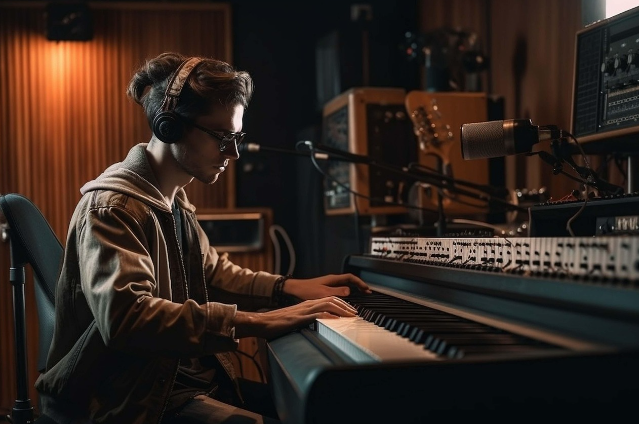
“I thought a person made this song—but it was AI.”
An overwhelming 80% of listeners struggle to distinguish AI-generated music from that created by humans. But when emotion, ownership, and artistry hang in the balance—what truly makes music matter?
AI Tunes on the Rise, Identity in Question
AI programs like AIVA (composition), LANDR (mastering), Moises.ai (vocal generation), and Suno (music creation) are revolutionising how songs are made—delivering melodies, masters, and choruses at the press of a button. AI is hailed as a democratiser, opening creative access to anyone.
The anticipated boom—projected to grow from $4 billion in 2024 to $30–40 billion by 2030—signals a seismic industry shift. But with such rapid change, a deeper question emerges: Can true creativity survive when the market is flooded with algorithmic mimicry?
Emotional Resonance vs. Statistical Composition
Composer Jason Fessel recalls creating an AI track, “Ashes on the Heath.” The result was technically impressive yet emotionally hollow—evocative, yes, but in a way that felt programmed rather than lived.
AI can mimic emotion, but it lacks experience. It produces only a statistical pastiche. That separation frustrates musicians, who fear that lived creativity is being stripped of its value.
Economic Costs: Artists Losing Ground
A CISAC-commissioned report warns that by 2028, AI could cut €22 billion—nearly a quarter—of musicians’ income, while boosting tech firms’ profits by €9 billion.
High-profile artists, including Billie Eilish, R.E.M., and Kacey Musgraves, have signed petitions warning that AI threatens royalties and undermines creativity.
Legal battles are mounting: Sony and T-Series have sued AI platforms like Suno and Udio for copyright infringement, accusing them of training models on copyrighted material without consent.
Streaming Flood: The Ghost Artist Problem
AI abuse is straining platforms. Deezer recently began labelling AI-generated tracks after discovering that nearly 18% of daily uploads were machine-made.
Meanwhile, Spotify has faced scrutiny for allegedly pushing “fake artists”—anonymous stock tracks disguised under pseudonyms—reducing royalties for genuine musicians.
Grimes: A Radical Embrace—with Conditions
While many musicians resist AI, some embrace it cautiously. Grimes has experimented with allowing AI to use her voice in exchange for shared royalties.
In India, the reaction is mixed. Industry legend A.R. Rahman has experimented with AI in his project The Secret Mountain (in collaboration with Sam Altman of OpenAI), emphasising that AI should support creativity, not replace it.
Others, like Asha Bhosle, warn that while AI may make music more accessible, it risks eroding originality and limiting opportunities for new talent.
The legal fight is intensifying: The Bombay High Court recently ruled in favour of Arijit Singh, declaring that AI reproductions of his voice infringe his personality rights. Platforms were barred from distributing AI-generated songs mimicking his likeness.
Cultural Clashes and Ethical Questions
India’s biggest labels—T-Series, Saregama, and Sony Music India—through the Indian Music Industry (IMI), have filed a lawsuit against OpenAI in Delhi, claiming AI is unlawfully trained on copyrighted music.
Controversies highlight cultural tensions. Bengaluru band Swarathma performed a ChatGPT-composed song live, sparking applause—but also a heated debate on originality. Meanwhile, an AI attempt to recreate the voice of the late Sidhu Moosewala drew outrage from his family, who called it an exploitation of his emotional legacy.
Redefining Music in the AI Era: Policy, Practice, and Purpose
Transparency Matters
Platforms must clearly label AI-generated music to protect both listeners and artists.
Fair Compensation Mechanisms
Royalty models must evolve—ensuring musicians are paid not only for songs, but also for serving as inspiration for AI outputs.
Legal Clarity & Ownership
Laws must address authorship. AI cannot hold rights—so ownership must reflect human contribution.
AI as Tool, Not Replacement
Used wisely—like Grimes’ royalty-sharing model—AI can amplify human creativity rather than erase it.
Protecting the Soul of Music
However polished, AI lacks the lived experience, culture, and intention that make music powerful. Authentic storytelling remains irreplaceable.
“AI can replicate structure, but not soul. The question isn’t whether technology can make music—it’s whether music can keep its humanity.”
